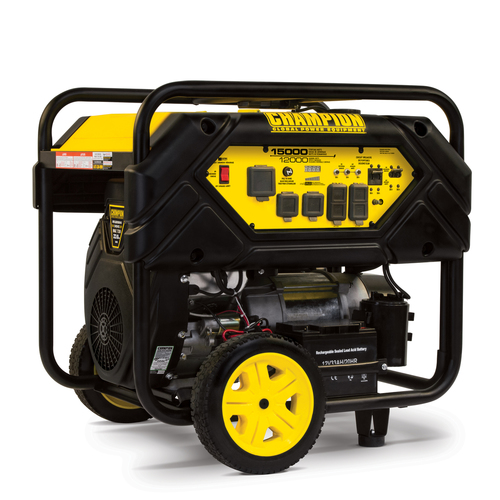FEMA Endorses Backup Generators for Power Outages During Hurricanes
Sep 12, 2018

Whenever hurricanes strike the United States a large number of the residents of the regions affected can’t or won’t evacuate due to a range of reasons. With strong hurricanes like the Category 4 that is now heading for the three states of North and South Carolina and Virginia, the National Hurricane Center in Miami said that residents should expect power outages and many days without power.
We tend to take electrical power for granted until we are confronted with a storm like Hurricane Florence. A power outage can affect lives of individuals who depend on it like the elderly who need it to energize oxygen and CPAP machines, oxygen concentrators and dialysis machines. In addition, medicines that some people require need to be refrigerated and new homes rely on sump pumps to evacuate water from basements. Those people who decide to stay must have power to preserve the food they have stored in refrigerators and freezers and just to be comfortable as they wait out the storm.
Moreover, there are generators that include WI-FI that allows you to control one through your smartphone or laptop computer from anywhere on earth. This is ideal for people who decide to evacuate the storm.
Knowing how essential power is when a household is facing an outage, the Federal Emergency Management Agency (FEMA), the department responsible for hurricane preparation and recovery, has advised residents who live in hurricane susceptible regions to purchase a power generator.
There are two types of generators that will provide power under this scenario –- portable and standby.

There are two advantages to portable generators –- they can go anywhere power is needed and they cost less than standby generators.
However, they are commonly stored and need to be wheeled out during a storm when an outage occurs. They need to be protected from the weather, filled with gasoline and manually started. If a person is looking for to power major appliances then a manual transfer switch must be connected to the home’s electrical system to power the furnace or central air conditioner. When the fuel runs out, someone has to go out into the bad weather and shut them down so they can cool and also re-fill them with fuel.
Standby or permanently installed generators connect directly to a home’s electrical system through an automatic transfer switch. They are designed to automatically restore power immediately when an outage occurs and they operate on natural gas or propane. There is no need to store multiple containers of gasoline that can go stale after 6 to 12 months of sitting around.

A standby generator is not only essential during hurricanes. They can provide power whenever an outage occurs whether due to a hurricane or some other reason.
During the last 10 years, the federal government has declared disasters nationwide more than 1000 times. On average, the government declares more than 100 disasters a year. Many disasters include power outages that could last for days, weeks, or even months. Witness the disaster that hit Puerto Rico as a result of Hurricane Maria in 2017. In that case, power wasn’t totally restored for nearly a year.
Every single region of the United States has experienced natural disasters. Hurricanes and tropical storms threaten the east and gulf states. Areas in the South, East, and Midwest are threatened with ice and snowstorms. Nor’easters commonly occur in the northern east coast states. Earthquakes threaten the west. Tornadoes are possible anywhere, but are most common in the Midwest. All of these disasters can cause a power outage.
A generator, whether it is a portable or standby, can be an essential utility no matter where you live.
